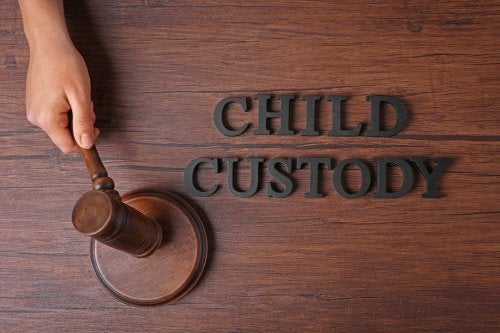-
Medication Disputes and Co-Parenting: A Look at Common Problems and Solutions
Even when parents are both committed to co-parenting cooperatively for the benefit of their children, disputes are inevitable. One common area of conflict involves medications and other medical decisions. Although some types of child custody put the power to make these decisions firmly in the hands of one parent, in other cases, parents each have the right to weigh in, and disagreements may arise. Your family attorney in Owings Mills can help you navigate these touchy issues when they occur. Here is a look at some of the common problems that happen regarding medication disputes in co-parenting agreements—and how you can overcome them.
 Common Medication Disagreements
Common Medication Disagreements In most cases, parents do not disagree about giving children medicine for acute illnesses, such as an antibiotic for bronchitis. Instead, parents may find they are not on the same page when it comes to managing chronic conditions, particularly ADHD or ADD. One parent may believe that the child needs to be on medication for attention deficit and/or hyperactivity, while the other parent doesn’t believe in giving children these kinds of medications. Other common areas of dispute are antidepressants or other medications for psychiatric conditions and vaccinations.
Solutions for Medication Disputes
Solving a medication dispute may be as easy as reviewing your child custody agreement. If one party has sole legal custody, then he or she has the exclusive right to make medical decisions for the children. If you have joint legal custody, then both parents must come to agreement on issues regarding medical decisions. If you can’t come to agreement, consult your family law attorney. He or she may recommend mediation, or in some cases, you may wish to return to court for a review of your custody agreement. Even if you haven’t experienced a dispute about medications or other aspects of medical care, it can be helpful to ask your family lawyer to include stipulations about how medical care will be addressed in your child custody agreement, so you can reduce the risk of future complications.
““
-
A Spouse’s Guide to Cruelty and Vicious Conduct
Maryland divorce law is quite restrictive, although a recent change in the rules relaxed the requirements for couples who do not share children and reach agreements on other matters. In nearly all other cases, spouses must live apart for 12 continuous months before they can be granted an absolute divorce, rather than a legal separation. An exception to this rule applies when a spouse has fault-based grounds for absolute divorce, such as cruelty and excessively vicious conduct. A family law attorney near Owings Mills can discuss your case with you and determine if a fault-based divorce is right for you.

Physical Violence
For a court to grant a divorce on the basis of cruelty, your spouse’s actions must be egregious to the extent that they could be said to significantly jeopardize your health or permanently eliminate your happiness. A court is more likely to determine that physical violence constitutes cruelty if the spouse engaged in a pattern of physical violence, has threatened physical violence, or has engaged in mental abuse. Divorce may be granted if this abuse was directed to either you or to a minor child. Acts of physical violence may include instances of marital rape.
Mental Abuse
Courts give mental abuse significant weight when considering whether to grant an absolute divorce for fault-based grounds. Generally, mental abuse must be egregious. For example, the use of profane language alone might not be sufficient to prove cruel treatment. However, the court might consider the use of profane or indecent language to belittle the spouse or otherwise compromise his or her self-respect. Other types of mental abuse include controlling behaviors like isolating the spouse from other family members and friends. Mental abuse can include taunting and making public, false accusations for the purpose of debasing the spouse.
Evidence
Proving cruelty and excessively vicious conduct in court requires the use of physical evidence or witness testimony. Your family lawyer can guide you in establishing proof, such as through the use of medical records, photographs of injuries, and written communications.
““
-
Will Remarriage Affect Your Child Support Payments?
In most cases, getting married again after a divorce will not affect a parent’s obligation to pay child support or the right to receive it. Since divorce-related laws do vary from state to state, you should consult a family law attorney near Owings Mills for legal guidance for your specific situation. If you are the noncustodial parent who is paying child support, you should not expect to have the payments increased solely because you remarried. Child support law doesn’t confer responsibility for the children to the new spouse.
If you are the custodial parent who is receiving support payments, you should continue to receive the same amount as before you remarried, regardless of whether your household now has two incomes. Some custodial parents who remarry consider canceling the child support agreement altogether. However, it’s still the noncustodial parent’s obligation to provide for the children’s needs. If child support payments aren’t needed for daily expenses, they could be contributed to a college savings fund instead.
““
-
Paying Taxes on Alimony and Child Support
Divorce usually results in difficult financial situations, which your alimony lawyer in Owings Mills will help you sort through. You may also wish to consult an accountant when it’s time to file your tax return, instead of handling tax changes yourself. If you’re the parent with primary physical custody of the child, you’re entitled to receive child support. These payments do not have to be reported as income—you’ll receive them tax-free to defray the expenses of rearing your child. If you’re awarded alimony after the divorce , you will typically have to report these checks as income, and they’ll be subject to taxation.
You might find yourself making alimony and child support payments after the divorce. In this case, your tax situation will be similar to that of your ex’s, only in reverse. You cannot deduct child support on your taxes in order to reduce your tax liability. However, you can usually deduct alimony payments, provided those payments are made in cash, rather than property. Additionally, alimony payments must be court-ordered if they are deducted.

-
Tips for Parents from Children of Divorce
Arguably, divorce is more difficult for the children than for the parents. When you make an appointment with a family law attorney near Owings Mills, take the time to also schedule a consult with a family therapist. Even if the children don’t go to the therapist with you, he or she can help you learn how to protect your kids from the most harmful aspects of divorce. Additionally, consider divorce mediation, which may help both parents co-parent more effectively.
When you watch this video, you’ll hear directly from some children of divorce. They explain what they wish their parents knew when they were getting divorced. Some of their recommendations include: Never argue in front of the kids, never ask the children to pass messages between parents, and never use the children as leverage against the other parent.
-
Tips for Estimating Your Child Support Payments
A child support attorney serving the Owings Mills area can estimate how much you can expect to pay, based on the state’s guidelines and your family’s finances. Unlike child custody, there is a set formula that divorce judges follow to determine a fair child support payment .
When you watch this video, you’ll learn that this formula relies on both parents’ income, household expenses, and the child’s financial needs. You’ll be asked to fill out a detailed financial statement, and your ex-spouse will do the same. Your attorney will adjust your net income based on whether you pay or receive alimony. If you already pay child support for children from a different relationship, these payments will be taken into consideration. Additionally, the courts may consider the family’s standard of living prior to the divorce.
-
Do Grandparents Have a Right to See Children After a Divorce?
Under divorce law, it is presumed that, barring evidence to the contrary, it’s in a child’s best interests to have balanced and ongoing access to both parents. Even when this is accomplished, other relatives may sometimes get left out. Grandparents can be powerful role models and loving caregivers for children. Grandparents who have been refused time with their grandchildren do have the legal right to request visitation. This is a complex issue, however, and grandparents are more likely to have a favorable outcome for their case by working with a family law attorney serving the Owings Mills area.

Understanding Federal Rulings
Initially, Maryland divorce law simply stated that the court may choose to award reasonable visitation to grandparents if it’s in the child’s best interests. Family law judges have considerable discretion when determining if something is or isn’t in a child’s best interests. However, this law was affected by a decision handed down by the U.S. Supreme Court in 2000. The case, Troxel v. Granville, was resolved with the ruling that fit parents are ultimately responsible for making decisions in their children’s best interests, and that they could choose to deny visitation with grandparents.
Overriding Parental Objections
In 2002, the Maryland Court of Appeals handed down a ruling on the case of Shurupoff v. Vockroff. In its ruling, the court established two ways in which grandparents could successfully obtain visitation despite parental objections. The first is to prove parental unfitness. The second is by proving that exceptional circumstances apply. Grandparent rights were further supported by the decision in the 2007 case, Koshko v. Haining. In its ruling, the Maryland Court of Appeals determined that exceptional circumstances exist to override parental objections when the absence of grandparent visitation would be harmful to the child.
Seeking Visitation with Grandchildren
Both case law and statutory law are still evolving in Maryland regarding grandparent visitation rights. A family lawyer can evaluate the merits of seeking visitation on a case-by-case basis, considering any recent legal developments. The process of seeking visitation rights starts with the filing of a petition with the appropriate court.
-
Common Violations of Custody Agreements
Ideally, both parents would wholeheartedly follow child custody agreements and work together cooperatively for the best interests of the children. Violations of custody orders only harm the child, and unfortunately, they are quite common. When child custody issues affect families in Owings Mills, a divorce attorney can help the non-violating parent find a good solution. It’s advisable to take action sooner, rather than later. Unless the violation was an honest mistake, it’s quite likely that the violating parent will repeatedly test the limits of the other parent’s patience.

Parental Alienation
Parental alienation is arguably the type of violation that is most damaging to the child. It often stems from violations of the non-disparagement clause, which requires both parents to refrain from badmouthing the other parent in front of the child. Disparagement can take many forms. It can include hypothetical statements like, “Your father is always running late. I wonder if he even really wants to see you,” and “Looks like the child support is late again,” and “If you’d rather stay with your friends this weekend instead of seeing your father, that’s fine with me.” Disparagement of the other parent is so damaging because it causes highly impressionable children to turn away from the disparaged parent. In severe cases, the children may voluntarily cut off all contact with the disparaged parent because they’ve been made to think, wrongfully, that this parent is evil or abusive.
Visitation Refusal
When the violating parent has engaged in disparagement and encouraged parental alienation, children often refuse to see the other parent. In other cases, the violating parent may decide to refuse to let the kids go with the other parent. Aside from protecting the kids from an imminent risk of harm—such as if the visiting parent arrives in an intoxicated state—there is no lawful reason to deny visitation. Late child support payments have nothing to do with a parent’s right to spend time with his or her children.
Visitation Interference
Even if visitation isn’t denied outright, the violating parent may attempt to interfere with it in some way. Violating parents might make a habit of scheduling doctor or dentist appointments during visitations, for example.
Education Decisions
Custody violations can include violations of joint legal custody. Legal custody refers to the authority to make major decisions for the child’s upbringing, such as decisions about schooling. If the parents share joint legal custody, then they must both agree to major decisions. An example of a violation occurs when one parent pulls a child out of school and enrolls that child in a different school without consulting the other parent.
-
Can a Child Request to Change a Custody Agreement?
The child custody laws applicable to Owings Mills, Maryland give the judge broad discretion in determining whether a child can voice his or her own preferences about the type of child custody arrangement. When establishing the original custody agreement , the judge will determine on a case-by-case basis if the child is mature enough to express his or her preferences. Judges will not consider poorly reasoned opinions, such as a child wanting to live with the mother because she has looser house rules. Greater weight is given to evidence of emotional attachment.
After the type of child custody has already been determined, either parent may later file for a modification due to substantial changes in circumstances. At this time, the child may again be able to voice an opinion. A child can only file the petition for him- or herself when he or she is at least 16. The teen must prove that a change in custody serves his or her best interests regarding emotional and physical well-being.

-
Exploring Reasons for Child Custody Agreement Modifications
Once a judge issues a ruling on the type of child custody arrangement, either parent must have a compelling reason to request a modification. A family lawyer serving Owings Mills may file a petition to request a modification if either parent has experienced a significant change in life circumstances. A substantial change doesn’t automatically compel a judge to order a modification, however. The change must be proven to be in the child’s best interests.

Household Relocation
One reason to have a family lawyer file this petition is if the custodial parent intends to undertake a long-distance move away from the noncustodial parent. Maryland law requires the relocating parent to file a written notice with the court and the non-relocating parent at least 90 days before the scheduled move. It’s possible for the non-relocating parent to agree to the move, in which case the parents can submit the written agreement to the court. If the non-relocating parent doesn’t agree to it, he or she has 20 days to file an objection after receiving the notice. Attorneys can represent the parties at the hearing, during which the court will consider which arrangement would be in the child’s best interests. In these cases, the court is primarily concerned with maintaining stability in the children’s lives and facilitating ongoing relationships with both parents.
Danger
If you think your child is in imminent danger, don’t wait for a court order—call the local police department right away. In less urgent situations, talk to a family lawyer about requesting a modification in custody. The court may consider a modification if you can prove that the child is at risk of harm in the other household due to domestic violence, substance abuse, parental neglect, or severe mental health disorders.
Parental Noncompliance
Sometimes, one of the parents repeatedly violates the terms of the custody agreement. Perhaps the mother refuses to let the father have his rightful visitation or repeatedly disparages the father where the children can hear. Or perhaps the father repeatedly brings the kids back late from visits. Parental noncompliance should be documented each time it happens. The first step is generally for the parents to try to improve their communication. If this doesn’t work, one of the parents could petition the court to enforce the order. Child custody modifications may be considered when these options fail, or when the violations of the custody order are significant.
RECENT POSTS
categories
- Uncategorized
- Divorce
- Infographic
- reviews
- Accidents
- Divorce Law
- Maryland Divorce Law
- Child Custody
- Alimony
- Indefinite Alimony
- Divorce Lawyer
- Annulment
- Kent L. Greenberg
- Matthew J. Rudo
- Child Support
- Credit Card Debt
- Remarriage
- Divorce Papers
- Child support law
- Alimony laws
- divorce process
- Alimony Payments
- Absolute Divorce
- Contested Divorce
- divorce attorney
- family attorney
- family law
- No-Fault Divorce
- Family Care Plan
- financial statement
- Online Divorce
- lawyer
- Uncontested Divorce
- Law Office of Kent L. Greenberg
- P.A.
- Joint Custody
- Senior Divorce
- DIY Divorce
- Car Accident Attorney
- Greenberg
- Personal Injury Law
- Domestic violence
- Вечірні сукні
- Вечерние и выпускные платья в Киеве 2023 года
- Яку весільну сукню купити для цивільного весілля?
